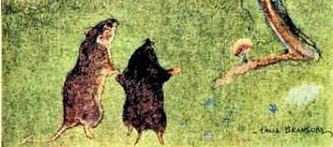Close. Get close. The empathy will come. That’s what I did as I explored the online story of Chimamanda Ngozi Adichie. This post is my way of thinking out loud about her works and how that connects with empathy. All of this is in response to Week Three of the Equity Unbound Course.
First, there is the call to action. Watch this video.
Next, my call to action: annotate along with me at Vialogues.
A push toward empathy, toward growing an understanding with my writer.
DuckDuckGo search: “Chimamanda Ngozi Adichie”
I stored the results of that search in my all-purpose research database, Zotero.
I took those results and put them into a Zotero Group: *Chimamanda Ngozi Adichie.
Zotero | Groups > *Chimamanda Ngozi Adichie
I use my search to home in on her official webpage. Frankly, her unofficial web page is a much better organized and deeper source of information.
Her official webpage has her Instagram account and her Facebook page. Her Instagram account is dedicated to Nigerian-based clothing and is run by her nieces. On her Facebook page I notice that I missed a live event and that she is doing a writing workshop in Nigeria. So many faces here I do not know. Writers? Who are these folks?
There is also an unofficial Twitter page that is trying to take advantage of her celebrity.
Speaking of celebrity, her Wikipedia entry is a fascinating map of connection. Here is a very short clip showing her incredible connectedness on Wikipedia.
A quote from her unofficial website using Pablo
This comes full circle to the TED Talk. Empathy is at the heart of trust. It is the ante in the infinite game of life. James Carse contextualizes this in his amazing book, Finite and Infinite Games,
MYTH PROVOKES explanation but accepts none of it. Where explanation absorbs the unspeakable into the speakable, myth reintroduces the silence that makes original discourse possible.
Explanations establish islands, even continents, of order and predictability. But these regions were first charted by adventurers whose lives are narratives of exploration and risk. They found them only by mythic journeys into the way less open. When the less adventuresome settlers arrive later to work out the details and domesticate these spaces, they easily lose the sense that all this firm knowledge does not expunge myth, but floats in it.
Substitute story for myth above and you can see Chimamanda Ngozi Adichie’s connection. The urge to get back to the undomesticated and original discourse and away from explanation.
It is what I am trying to get at with my first question about trust in #unboundeq
The Trust Game
Do I trust you?
And
just
like
that
thresholds, boundaries, and margins
materialize.
Finally.
Now we can get past
“just
like
that,”
just
like
this:
How can I trust you?
Empathy first, then trust, then stories that blaze trails but that also encourage all of us to blaze trails and not paint explanations.
Blaze your own damned story.



Permalink //
Ah. Vialogues. Brilliant. Will meet you there.
And may use it in an annotation workshop soon.
Kevin
Permalink //
Vialogues is a perfect tool, simple yet as nuanced as you want it to be. I find that my responses to this video have felt very nuanced. I have watched it all, but I am only responding now that I have done a little research into her work, life, and world. Listen to this while you watch: https://goo.gl/NkG9hD
Permalink //
Thanks for setting up the video on Vialogues. And for starting the web archive on Zotero.
As I read the article last week, as a result of my connections with you on #clmooc and then others who led me to #unboundeq, I started to try to communicate the learning path that has begun to introduce me to stories about Africa and other parts of the world that have not been part of my learning experience over the past 70 years.
I had created a couple of cMaps to show my learning path, such as this one. http://tinyurl.com/TMI-Learning-7-14-17
I’ve also used cMaps to show sections of my web library. This one points to articles about Equal Justice, Poverty Law: cMap – https://tinyurl.com/Law-Justice-Poverty-Links
These links are primarily USA focused. Thus, a new map needs to show a fork in the road, pointing in one direction to my library, but pointing in another direction to Maha Bali and other voices, and a web library with articles that point to non Western cultures, literature and challenges.
Are you beginning to do that?
Permalink //
I think a network of folks you might want to connect with is reporters, especially local ones. Perhaps you have already tried to do this, but they are always interested in maps and ‘filter folk’ like you. Let me know about this.
Permalink //
I am taking a course with Harold Jarche where I am trying to diversify my networks. Much of what I am doing I have done for a quite a while.